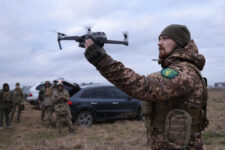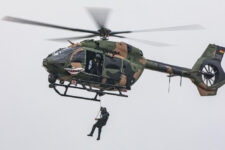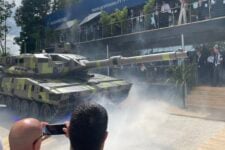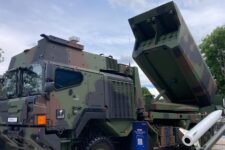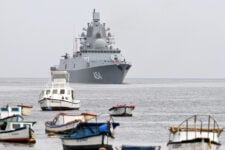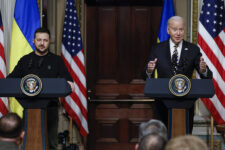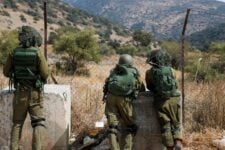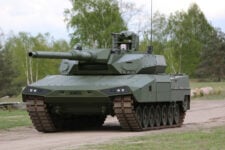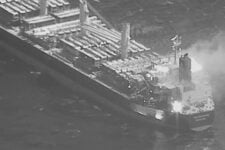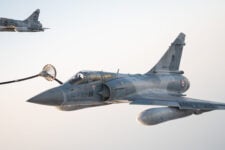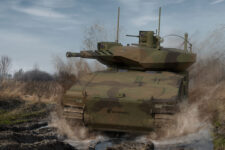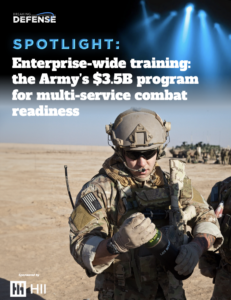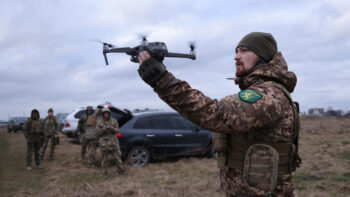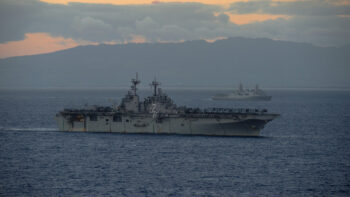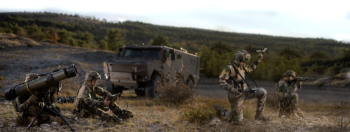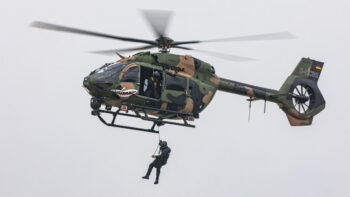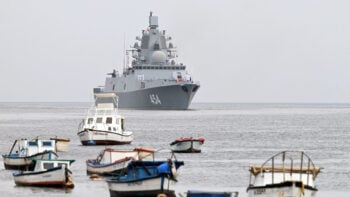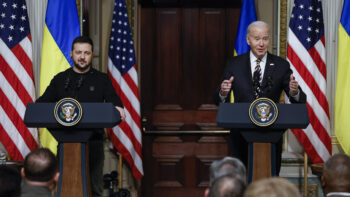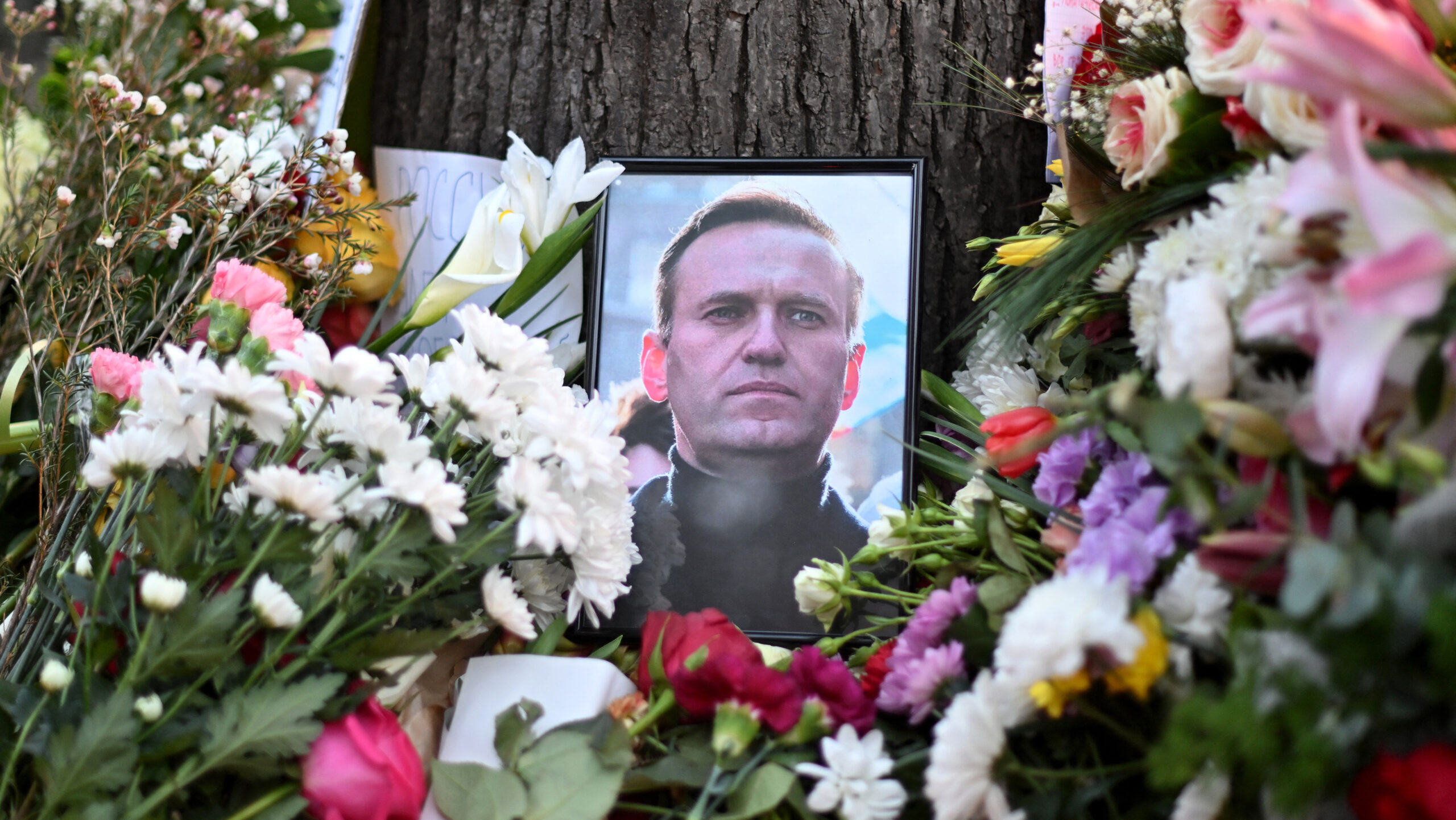
This photograph taken on February 16, 2024, shows a portrait of Alexei Navalny displayed amongst flowers as protestors pay their respects outside the Russian Embassy in Belgrade, following the news of Russian opposition leader and political activist Alexei Navalny’s death at the Arctic prison where he was serving a 19-year-term. (Photo by OLIVER BUNIC / AFP) (Photo by OLIVER BUNIC/AFP via Getty Images)
MUNICH — On center stage of the first day of the Munich Security Conference, Yulia Navalnaya, the wife of Russian opposition leader Aleksei Navalny, pledged that Russian leader Vladimir Putin and his associate will be “punished for what they have done with our country, with my family and with my husband,” a speech that ended with a rousing standing ovation from the gathered national security leaders.
That Navalnaya was scheduled to speak at the conference on the day of her husband’s reported death was coincidence. But news of Navalny’s end quickly became the center of the first day of the MSC, knocking other topics to the side as politicians raced to offer their support for the late Russian opposition leader.
Faced with the catastrophic news, Navalnaya admitted she deliberated about whether to speak in Munich or return to her children, but decided to go ahead with the set piece engagement, because, had Navalny been in her place, “I’m sure he would have been standing on this stage.” She was originally set to talk on the theme of “a better Russia,” according to organizers.
“They will be brought to justice and this day will come soon” she said, calling on the international community to “fight against this evil.”
RELATED: From Russia with nukes? Sifting facts from speculation about space weapon threat
Munich was always going to have a strong anti-Russia thread running through it, as large meeting of world leaders, diplomats, academics and think tanks in the national security space is decidedly European focused. But news of Navalny’s death, which broke just as the meeting was getting underway, provided a new focal point for critics to shape their barbs at Moscow.
Organizers of the conference suggested an “intense” atmosphere had developed, following the Navalny news. Nico Lange, a senior fellow with the Munich Security Conference, described the atmosphere, as “somewhat dark” and “very serious.”
Reaction to the death was immediate from officials on the ground here, with blame squarely pointed at Russia and Putin.
“Whatever story they tell, let us be clear: Russia is responsible,” said American Vice President Kamala Harris, in one of the highest-profile national security appearances of her term.
Ursula von der Leyen, President of the European Council commented that Navalny’s death, “showed Putin fears nothing more than dissent from his own people,” and added that the world had “lost a freedom fighter.” She vowed that Europe will “honor his name, and in his name we will stand up for democracy.”
In Munich but writing on Twitter, Prime Minister of Estonia Kaja Kallas, said the death presented “another dark reminder of the rogue regime we’re dealing with.”
And also at the summit but similarly posting on social media, former UK defense secretary Ben Wallace said that: “For every action, Putin must feel a reaction.” He called for a series of actions as a consequence of Navalny’s passing, headed by NATO members committing to train 200,000 Ukrainian forces a year and increasing weapon supplies to Kyiv.
He also put pressure on Germany to send the Taurus cruise missile to Kyiv, as Berlin continues to refuse to do so.
Ultimately, how much more Western nations can do to punish Moscow is unclear, given the intense sanctions already in place against Russia broadly and Putin’s inner circle personally. But at a conference where Russia was inevitably going to be the main topic, Navalny’s death seems to have underlined the ongoing danger facing European nations from a belligerent enemy.
France makes new ‘pact’ with industry to speed small drone production, acquisition
Like Washington, Paris has learned that it must help commercial industry along and reform its own buying practices to catch up in explosion of small UAV battlefield use.
